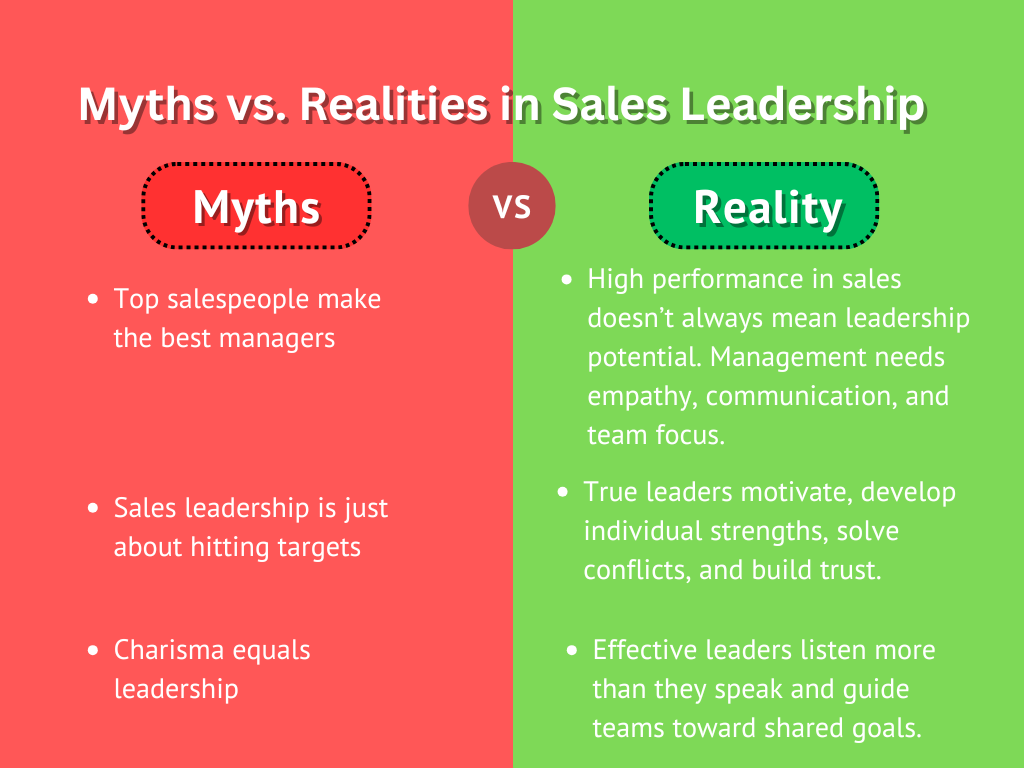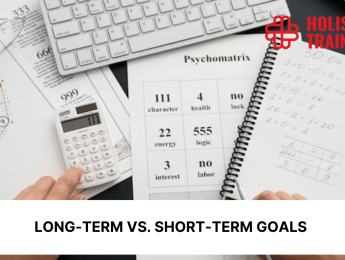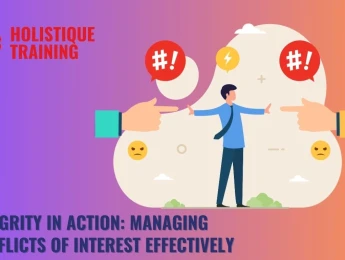- Table of Contents
- Introduction
- Why Sales Management Skills Matter More Than Ever
- Common Misconceptions About Sales Leadership
- The Difference Between Good and Exceptional Sales Managers
- 5 Essential Skills of Exceptional Sales Managers
- 1. Strategic Thinking and Goal Setting
- 2. Coaching and Team Development
- 3. Emotional Intelligence and Communication
- 4. Data-Driven Decision Making
- 5. Adaptability and Resilience
- Conclusion
Introduction
Sales management is one of the most pivotal roles in any organization. Sales managers are not only responsible for generating revenue, but also for leading teams, driving growth, and aligning sales strategies with broader business goals. In today's dynamic and unpredictable market, the role of the sales manager is no longer confined to simply overseeing day-to-day operations. They are now expected to act as strategic leaders, coaches, analysts, and culture-builders within their teams.
The growing complexity of buyer behavior, digital transformation, and the global nature of competition have made it essential for sales managers to upskill and evolve. Modern customers are more informed, markets are more saturated, and competition is more aggressive than ever. Sales managers who lack adaptability, emotional intelligence, and data fluency risk falling behind, no matter how experienced they are.
In this article, we’ll take a closer look at the essential elements that define outstanding sales leadership. We’ll begin by examining why sales management skills are more important than ever in today’s fast-changing business environment. Then, we’ll explore some of the most common misconceptions about what it takes to be an effective sales leader—challenging outdated beliefs that can hinder growth. Next, we’ll compare the traits of good sales managers with those of exceptional ones, highlighting the key differences in leadership style, team development, and strategic impact. Finally, we’ll break down the five core skills that truly set exceptional sales managers apart from the rest.
Why Sales Management Skills Matter More Than Ever
The business landscape has changed dramatically over the last decade. Technology has disrupted traditional sales models, remote work has become normalized, and customers now expect personalized experiences driven by data. These shifts demand that sales managers possess more than just industry knowledge—they need advanced skills to keep up with fast-paced change.
Sales managers are now tasked with managing hybrid teams, leveraging CRM platforms, analyzing performance metrics, and adjusting to real-time feedback from both clients and sales representatives. Additionally, burnout and turnover rates in sales remain high, placing an increased burden on managers to maintain morale and engagement.
Moreover, the current economic climate has tightened budgets and extended sales cycles. Managers need to be more strategic and efficient with their resources, making every client interaction and internal process count. It's not just about working harder—it's about working smarter and more humanely.
As the sales environment grows more complex, the skill set of a successful sales manager must expand accordingly. Adaptability, emotional intelligence, and strategic thinking are no longer nice-to-haves—they are essential.
Common Misconceptions About Sales Leadership
One of the most persistent myths in the business world is that the best salespeople automatically make the best sales managers. While it might seem logical to promote top performers, this assumption often leads to poor leadership and team dysfunction.
Great salespeople are usually highly competitive, independent, and results-driven. These traits, while effective in closing deals, don't necessarily translate into the ability to lead and nurture a diverse team. Sales management requires a different skill set—one that includes emotional intelligence, communication, patience, and a willingness to put the team’s needs above individual success.
Another common misconception is that sales leadership is mostly about setting targets and holding people accountable. While these tasks are part of the job, they are not enough. True leadership involves motivating the team, developing each individual’s strengths, resolving conflicts, and fostering a culture of trust and collaboration.
Many also believe that charisma alone can make a great sales leader. However, leadership isn't about being the loudest voice in the room—it’s about listening, adapting, and guiding others toward a shared vision.
By dispelling these myths, organizations can better identify and train potential sales leaders. A structured development plan that includes mentoring, soft skills training, and performance management can turn a good salesperson into a great leader—but not without intentional effort and the right mindset.

The Difference Between Good and Exceptional Sales Managers
Not all sales managers are created equal. While many can manage pipelines and track KPIs, only a few can truly inspire and elevate their teams. Understanding the differences between a good and exceptional sales manager can help organizations focus on nurturing high-impact leadership.
Here’s a comparison table outlining the key differences:
Aspect | Good Sales Manager | Exceptional Sales Manager |
Goal-Setting | Sets clear, short-term targets | Aligns goals with long-term strategic vision |
Team Development | Offers periodic feedback | Provides continuous coaching and mentorship |
Communication Style | Delivers instructions | Listens actively and adapts communication style |
Problem Solving | Resolves issues as they arise | Anticipates challenges and prepares solutions |
Use of Data | Reviews performance reports | Leverages analytics to drive proactive decisions |
Leadership Approach | Manages processes | Inspires people and cultivates culture |
Exceptional managers go beyond supervision—they create an environment where individuals are empowered to grow, innovate, and exceed expectations. They are not only measured by team performance but by team development, morale, and retention.
This level of leadership doesn't happen by chance; it’s the result of cultivating the right skills, which we will explore next.
5 Essential Skills of Exceptional Sales Managers
1. Strategic Thinking and Goal Setting
Exceptional sales managers don’t just manage—they lead with vision. Strategic thinking is about seeing beyond immediate sales targets to understand long-term growth opportunities and competitive advantages. A skilled manager evaluates market trends, customer behavior, and internal performance metrics to make informed decisions that align with the company’s goals.
Setting clear and realistic goals is a cornerstone of this skill. Effective managers don’t just tell their teams to "sell more"; they break down annual revenue targets into quarterly, monthly, and even weekly objectives. These goals are not only measurable and time-bound but also aligned with broader business strategies. For example, if a company is shifting toward SaaS products, the manager adjusts the team's objectives to reflect subscription-based KPIs rather than one-time sales figures.
Moreover, strategic sales managers know how to balance ambition with practicality. They analyze team capabilities, market saturation, and client feedback to set achievable yet motivating benchmarks. They also ensure that every sales rep understands how their individual targets contribute to the larger organizational mission—creating a sense of purpose that drives performance.
In essence, strategic thinking combined with goal-setting provides the foundation for all other leadership actions. Without it, sales teams operate blindly. With it, they operate with focus, purpose, and agility.
2. Coaching and Team Development
An exceptional sales manager is also a dedicated coach. They recognize that their success is directly tied to the growth of their team. Coaching goes beyond performance reviews or occasional feedback—it’s an ongoing commitment to developing each team member’s strengths and addressing their weaknesses with empathy and strategy.
Great managers observe their sales reps during calls, join client meetings, and review CRM notes not just to critique, but to understand each rep’s style and offer tailored guidance. They might role-play challenging scenarios, provide scripts and templates, or recommend skill-building resources such as negotiation workshops or industry certifications.
What sets apart excellent coaches is their ability to inspire growth mindsets. Instead of penalizing mistakes, they treat them as learning opportunities. They create a psychologically safe space where team members feel empowered to ask for help, share challenges, and take risks without fear of failure.
Moreover, strong sales managers invest in career development. They identify potential leaders within the team and nurture them through mentorship, cross-functional exposure, and increased responsibilities. This not only boosts morale but also improves retention, as reps feel valued and see a future within the organization.
At the heart of this skill is the belief that people are the most valuable asset in any sales strategy. Coaching and development aren’t add-ons—they’re essential for building a resilient, high-performing team.
3. Emotional Intelligence and Communication
While technical skills and experience are important, what truly sets exceptional sales managers apart is emotional intelligence (EI). It’s the ability to recognize, understand, and manage your own emotions—while also navigating the emotions of others. In high-pressure sales environments, this becomes a make-or-break trait.
A manager with high EI doesn’t just listen—they actively listen. They pick up on tone, body language, and even what’s not being said. This sensitivity allows them to handle difficult conversations with empathy, defuse team conflicts, and build trust with both clients and colleagues.
Effective communication goes hand-in-hand with EI. Whether delivering praise, offering constructive criticism, or negotiating deals, the message needs to be clear, respectful, and motivating. Great managers tailor their communication styles based on the individual—what works for one salesperson might not work for another. For example, some reps may thrive with direct feedback, while others need a softer, more supportive approach.
Emotional intelligence also plays a key role in handling rejection and stress. Sales teams face frequent setbacks, and a manager who can stay calm and composed—while helping others regain confidence—builds a culture of resilience.
Ultimately, a manager’s emotional intelligence influences the entire team dynamic. It fosters a workplace where people feel heard, understood, and valued. And when people feel that, they perform better.
4. Data-Driven Decision Making
Gone are the days when sales success depended solely on intuition or gut feelings. Today, exceptional sales managers rely heavily on data to drive decisions, optimize performance, and identify growth opportunities. The ability to interpret data accurately—and translate it into actionable strategies—is a critical competitive advantage.
A strong manager regularly monitors KPIs such as conversion rates, lead-to-close time, pipeline velocity, churn rates, and customer acquisition costs. But they don’t just track these numbers—they analyze them. For example, a dip in conversion rates might indicate a messaging issue, a targeting misalignment, or even a training gap. Data allows managers to diagnose problems quickly and implement solutions before they impact the bottom line.
Moreover, data-driven leaders use insights to forecast sales trends and allocate resources more efficiently. They understand which products are performing well, which territories need support, and which reps are underutilized. This strategic visibility helps in assigning leads intelligently, setting realistic targets, and fine-tuning incentive programs.
Perhaps most importantly, data brings objectivity to performance reviews. Instead of relying on assumptions or bias, managers can give fair, metrics-based feedback that builds trust and accountability.
In the end, data-driven decision-making doesn’t replace experience—it enhances it. It empowers managers to lead with clarity, precision, and confidence in an increasingly competitive market.
5. Adaptability and Resilience
In a world where sales landscapes shift rapidly—due to economic changes, customer behavior, or tech disruptions—adaptability isn’t optional; it’s essential. Exceptional sales managers are those who embrace change, lead through uncertainty, and bounce back stronger after setbacks.
Adaptability means being willing to pivot strategies when something isn’t working. It means trying new sales techniques, adopting emerging technologies, or even restructuring teams when necessary. Managers who resist change often slow their teams down, while adaptive leaders foster agility and innovation.
Resilience is equally crucial. Sales is a rollercoaster, and even the best teams face rejection, missed quotas, and client churn. Great managers model emotional endurance by staying positive, learning from failure, and motivating their teams to persevere. They don’t ignore problems—but they don’t let them define the team’s morale either.
An adaptable and resilient manager also supports their team emotionally during hard times. Whether it's dealing with a lost account or adjusting to a new CRM, these managers acknowledge challenges while encouraging forward momentum.
In short, adaptability and resilience are what allow a sales manager to thrive in volatile environments. They turn obstacles into opportunities, and uncertainty into progress—qualities that define leadership at its finest.
Conclusion
As the modern sales landscape continues to evolve, the demands placed on sales managers have never been higher. Gone are the days when hitting quarterly targets was enough. Today’s exceptional sales managers must be strategic thinkers, effective coaches, emotionally intelligent leaders, data-savvy decision-makers, and adaptable problem-solvers.
We’ve explored why sales management skills are more critical than ever, debunked the myths that hold teams back, and clarified the traits that separate good managers from great ones. Most importantly, we’ve outlined five essential skills that can elevate sales managers to exceptional status—skills that not only improve individual and team performance, but also contribute to long-term business success.
If you’re looking to sharpen your leadership capabilities or prepare your team for the future, consider enrolling in our Sales Mastery Courses—designed specifically to help professionals build and apply these essential skills in real-world scenarios. And don’t forget to subscribe to our newsletter for regular insights, resources, and tips to help you lead with impact in the fast-changing world of sales.
Lead smarter. Lead stronger. Lead exceptionally!

























